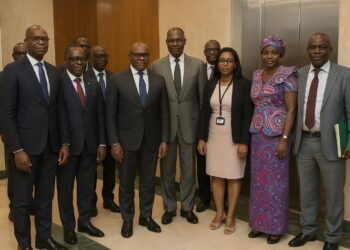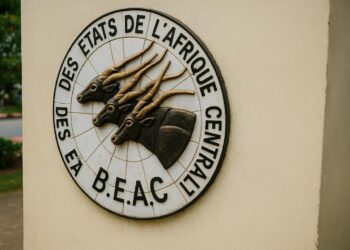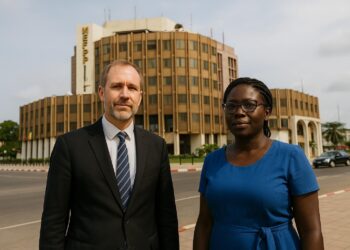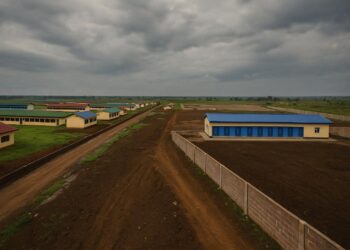Brazzaville doubles down on AfCFTA readiness
On 29 September, the World Customs Organization opened an advanced training workshop in Brazzaville to help Congolese customs officers master the rules of origin underpinning the African Continental Free Trade Area. The five-day session has quickly become a focal point for policymakers and businesses eyeing regional growth.
Implemented under the EU-WCO Programme for Rules of Origin in Africa, the initiative is designed to translate the AfCFTA’s ambitious tariff commitments into on-the-ground facilitation. Trainers from the WCO and the AfCFTA Secretariat are providing step-by-step guidance on interpretation, verification and certification procedures.
Colonel Pierre Oba, Director-General of Customs, told participants that efficient origin management could raise Congo’s non-oil exports “by double digits within three years”, provided companies and border officials move in lockstep. His optimism echoes remarks by AfCFTA Secretary General Wamkele Mene in recent regional briefings.
According to WCO data presented on day one, only 15 per cent of intra-African trade currently benefits from preferential rates because many firms struggle to prove origin. Simplifying that paperwork is therefore a top priority for Congo, whose manufacturers face freight costs higher than global averages.
Why rules of origin unlock market access
Rules of origin determine whether a product qualifies for the AfCFTA’s zero-duty regime. Officers must verify that sufficient value was added within participant states or that raw materials meet agreed thresholds. An erroneous certificate can delay cargo, generate penalties and erode the very competitiveness the accord seeks to boost.
The workshop therefore walks delegates through real customs declarations, using the WCO’s Electronic Origin Data Interface System to flag red-line errors. Trainers underline the balancing act between trade facilitation and revenue protection, a conversation that resonates in Brazzaville where customs duties account for a sizable share of public resources.
Hands-on curriculum over five intensive days
Day two focuses on the Change in Tariff Heading criterion, with instructors demonstrating how marginal processing can disqualify imports from preference claims. Live case studies cover timber panels, refined copper and cocoa derivatives—three Congolese export lines earmarked by the Ministry of Trade for early AfCFTA utilisation.
During the mid-week segment, participants migrate to the Central Customs Laboratory, recently refurbished with EU financing, to review product-specific rules under microscopes and spectrometers. Such scientific testing, officials argue, forestalls disputes at destination ports and shortens turnaround times for carriers on the Pointe-Noire–Douala maritime corridor.
On the final morning, trainees will sit a certification exam whose questions mirror real consignment scenarios. Successful officers will feed into a national pool of ‘AfCFTA champions’ tasked with cascading knowledge to border posts in Ouesso, Lékety and the economically strategic Special Economic Zone of Maloukou-Tréchot.
Business and government exchange real-time feedback
Alongside the classroom exercises, a town-hall session brings together freight forwarders, chamber of commerce representatives and officials from the Ministry of Economy. Entrepreneurs highlighted documentary overlaps between AfCFTA certificates and Central African Economic and Monetary Community forms, urging a single electronic window to eliminate redundant signatures.
Customs managers agreed to pilot such a platform in 2024, leveraging biometric clearance already deployed at the Port of Pointe-Noire. According to EU delegate Céline Rossignol, digitalisation would slash compliance costs for small and medium-sized enterprises that ship less than 50 containers a year.
A side note generated palpable interest: under the AfCFTA Guided Trade Initiative, Congo could pair with Ghana or Rwanda to run pilot shipments as early as next quarter. Officials said discussions are ongoing, emphasising the importance of demonstrating tangible benefits to local producers and logistics firms.
Data snapshot of Congo’s origin claims
Table 1 below compares the number of preferential origin certificates issued by Congo in 2021, 2022 and the first half of 2023. The steady uptick from 480 to 730 documents suggests rising awareness, yet officials caution that more than a thousand additional shipments missed out on duty savings.
2021 | 480 certificates | USD 3.8m trade value; 2022 | 615 certificates | USD 5.1m; Jan-Jun 2023 | 730 certificates | USD 6.4m. Source: Directorate-General of Customs, compiled for the workshop.
Prospects for investors and policymakers
If Congo succeeds in streamlining origin procedures, analysts from Ecobank Research expect intra-African exports to account for 25 per cent of the country’s total shipments by 2028, up from today’s eight per cent. That dynamic could diversify earnings away from oil and reinforce fiscal resilience.
For regional policymakers, the Brazzaville workshop is a reminder that trade agreements live or die at the border. Harmonised implementation, not new negotiations, will determine how quickly the AfCFTA converts political will into factories hiring, trucks moving and supply chains re-routing through Central Africa’s corridors.
The Customs Directorate is already drafting a ministerial decree that would formalise electronic certificates of origin and recognise digital signatures across all border posts. A public–private working group is expected to publish technical standards in December, opening the door for fintech providers to integrate payment and tracking solutions.











































